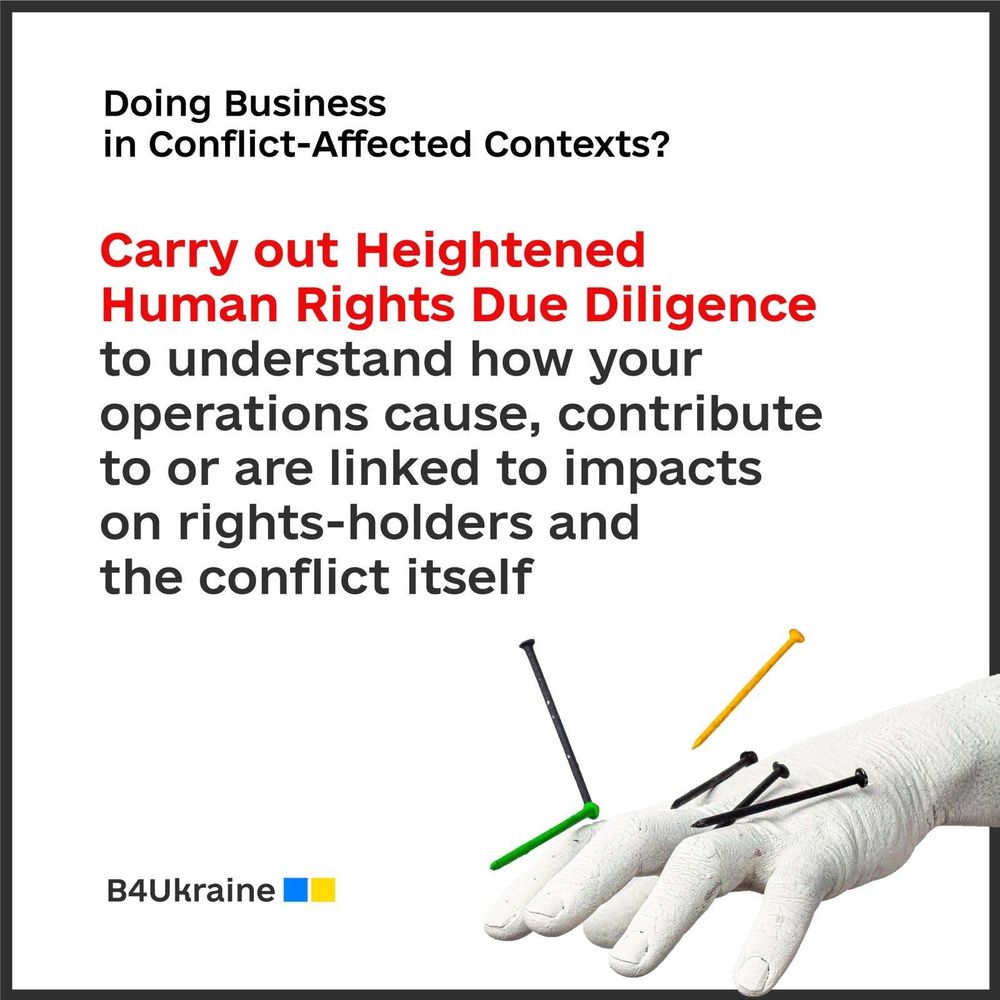
In conflict-affected contexts, the UN Guiding Principles on Business and Human Rights, OECD Guidelines for Multinational Enterprises, and the UNDP Guidance on Human Rights Due Diligence for Business in Conflict-Affected Contexts call on companies to engage in heightened human rights due diligence (HRDD) with a conflict-sensitive lens to understand how their operations cause, contribute to, or are linked to impacts on rights-holders and the conflict itself. To carry out heightened HRDD, we call on companies to take the following steps:
- Publicly affirm support for the democracy, territorial integrity, and fundamental rights of the people of Ukraine with accompanying public support for the international rule of law;
- Report regularly and publicly on their human rights policy, including due diligence efforts and procedures in place to cease, prevent, and mitigate negative human rights impacts;
- Take all possible measures to protect workers and the communities in which direct operations and those across their value chain take place in Ukraine;
- Understand the context of the conflict by identifying what historical events, political, economic, social, or environmental institutions, and structures have shaped the conflict; the actors influencing the conflict; the causes and consequences of the conflict; the current trends/dynamics of the conflict; and the risks of the conflict for rights-holders, specifically including vulnerable groups;
- Identify the actual or potential impact of business activities on the conflict by analyzing how the company might affect positions of power or relationships between the conflict actors, causes, or dynamics of the conflict;
- Map business activities, relationships, and/or investments across the entire value chain that are causing, contributing to, or are linked to the conflict, war effort, and/or human rights harms;
- Prevent and mitigate exposure to human rights risks or impact on the conflict based on these findings, including through the termination of business activities if such risks prove to be immitigable;
- Design and implement processes to enable the remediation of adverse human rights or conflict impacts, including those impacts on their in-country staff and local stakeholders;
- Identify any potential areas of leverage to mitigate any remaining impact the business activities have on the conflict or rights-holders
- Adopt policies and practices that identify, assess, and address the heightened human rights risks inherent in conflict-affected and high-risk areas;
- Identify the potential impact of the business activities’ on the conflict/rights-holders associated with exiting or suspending operations by analyzing if such actions could exacerbate conflict tensions, if the harms to rights-holders outweigh the benefits; if the goods/services are essential; and if the company is able mitigate the identified impacts.